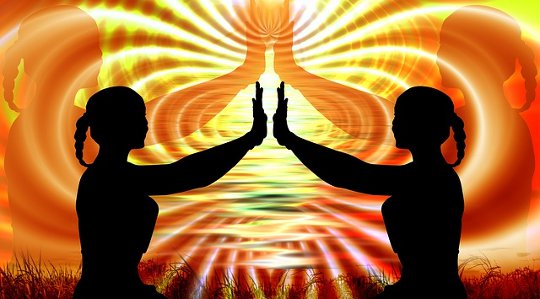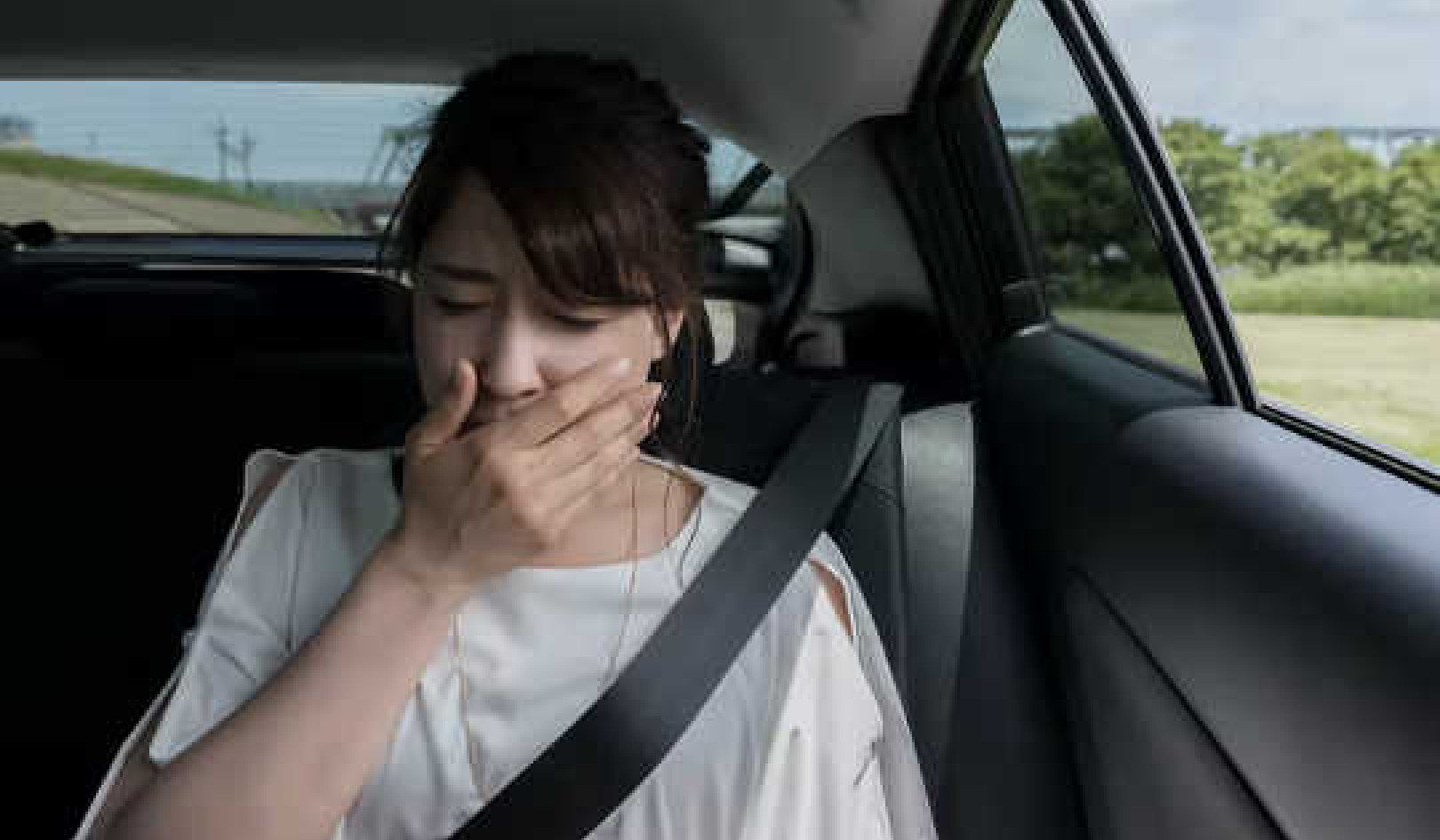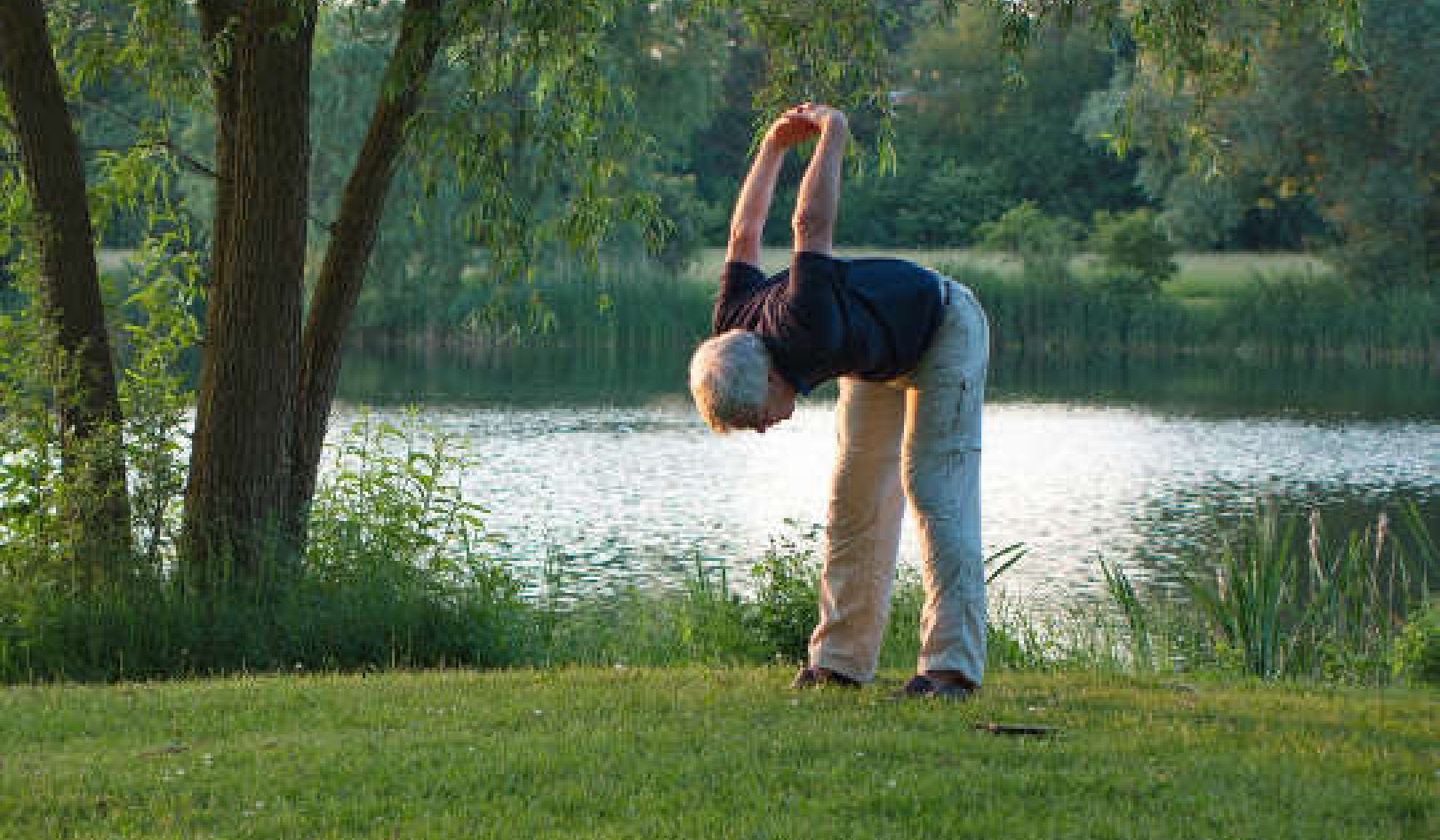
Which is more important to you, your world-view or your health? It may be that the world-view you have absorbed from the society around you is interfering with your control over your own health.
Anything that remains unconscious rather than conscious affects our behavior without our knowing about it, as psychoanalysts and advertising agencies could testify. This is why society’s shared assumptions are so hard to shake off. What everybody implicitly believes becomes invisible, self-evident, beyond question.
Bringing our society’s tacitly accepted beliefs into consciousness is the only way we can attain our proper control over them. Once we do, some of what had seemed plain common sense will be seen as merely one way to see things, and perhaps not at all the most plausible way.
Four Major Commonly Accepted Assumptions
I count four major commonly accepted assumptions that stand in the way of our taking greater charge of our own health. You may find that it takes some effort to give them a critical examination, as they may seem so obviously true. I assure you, it is worth the effort. Maybe you will look at them and continue to believe them. But perhaps once you really look at them, you will decide that the truth lies elsewhere. I urge you, take the risk. Again, what’s more important to you, your world-view or your health?
The “mainstream” of our society unconsciously assumes that:
1. Things sometimes “just happen.”
2. Illness is externally caused.
3. Our physical, emotional, mental, and spiritual components are separate and distinct from one another.
4. The physical body is a mechanical system.
Believing the Opposite is Worthwhile for Your Health
I don’t think any of those assumptions are true. My experience argues that in trying to correct or maintain your health, it is worthwhile to live believing just the opposite:
1. It is not true that things “just happen,” or that chance, accidents, or coincidences really exist, regardless of appearances.
2. It is not true that we become ill for reasons that are separate from the rest of our lives. Illness (and health no less) expresses our inner condition.
3. It is not true that our physical, emotional, mental, and spiritual components are separate and distinct from one another.
4. It is not true that the physical body is a mechanical system.
Change those four unconscious assumptions and you wind up with a radically different picture of human health and life.
Everything Is Connected
Our internal lives and our external lives mirror each other, for the very good reason that they are two ways of viewing (and participating in) the very same reality.
This cannot be “proved” by logic. The only thing that will prove it for you will be your own experience. I strongly encourage you to start living your life as if everything were connected. Look for meaning behind what may at first seem to be mere coincidence. I cannot guarantee that you will begin to see the underlying unity of all the things in our lives, but I can guarantee this: You will never see that unity if you don’t at least make the attempt to see life that way. Again, it is a matter not of belief, but of absence of disbelief. Be open to the possibility, and see what your life shows you.
We commonly assume that everything would be fine if nothing “bad” ever happened. But struggles bring growth. Health struggles, particularly, can have a spiritual aspect, and a mental aspect, as well as a purely physical aspect, and don’t know what might come of them.
We don’t know, because we can’t know. Perhaps whatever is being worked out has to do not only with life now but with life to come. (I don’t say it does. I say, perhaps.) In the last analysis we are left either believing, or being unable to believe, that all is always well, which is what mystics consistently tell us.
We Continually Create Our Own Bodies
Seth, as channeled by Jane Roberts in the latter half of the 20th century, stresses that we continually create our own bodies and use them as windows from which we look out into the world. But if this is so, why are we troubled with disease and illness? Why do we not have perfect health? For that matter, why are we overweight? Why do we lose our hair, or see it turn grey? We don’t know.
Part of the answer may be the conflict between conscious creation and unconscious creation. The one either augments the other, or contradicts it. In fact, it often does both at once, augmenting one part, contradicting another part. If we consistently choose health—create health—we are healthy. But it is not that clear-cut. You may not wish to have problems with your teeth, say, but if you think negatively of them, and have learned to expect them to give you trouble, you will not be disappointed. People say that tooth trouble stems from bad habits and from hereditary weaknesses, and if you believe it, it is so. But it is not the entire story.
In practical terms, not merely as a figure of speech, we have not one but four bodies, as a few minutes’ thought and experimentation will show. Can you experience the mental, emotional, and energy bodies? Yes, you can. And it isn’t hard.
You know you have a physical body because you experience it every moment. But unless you are a lot more conscious than I usually am, you experience the body as one undifferentiated mechanism that functions more or less automatically. But in actuality, it is a complicated set of interlocking intelligences. Two examples are the placebo effect, and a prospective father’s sympathy pains. (And it shouldn’t surprise you that both of these very telling indicators are derided by our materialistic, disconnected society.)
The Placebo "Miracle Effect" and Sympathy Pains
If you give people a sugar pill or similarly neutral substance that they believe is a medicine, a certain percentage will get well with no other treatment. The placebo effect demonstrates that in at least a significant number of cases the belief, not the physical substance, is what cures. By rights, it ought to be called “the miracle effect.”
And if in many cases it isn’t the medicine but the belief that cures, how do we know but that those who received medicine also got better not because of the medicine but because of their belief?
As to sympathy pains, societies all over the world have reported the same phenomenon. A woman suffering labor pains; the baby’s prospective father experiencing pains just like hers—sympathy pains—for no physical reason. In the years since I began helping others to heal, I have often experienced a different form of sympathy pains, and I find them very useful.
Part of helping others to heal involves “connecting” with them. When I do that, I often feel pain in the places where they feel pain, and feel it (so far as I can tell) with the same intensity and “flavor” as they do. This is enormously helpful, as it tells me where to focus our efforts.
Here we come to the nub of it. And the first step is to have an in-the-body experience.
How Well Do You Know Your Body?
How often do you check to see if you are in your body? That may sound like a joke, or a meaningless statement, but in fact I suggest that many of us are riding around in unfamiliar vehicles. We don’t relate to them even as well as we do with, say, our cars.
We don’t do the maintenance, we don’t watch the gauges, we’ve never looked in the owner’s manual (nor do we know where to find it) and we often think of them primarily as useful nuisances—necessary, but often troublesome and sometimes expensive to maintain. Maybe we like them, maybe we don’t. Maybe we like to tinker with them, tuning them up for higher performance perhaps, or maybe we just want them to work when we need them.
Sound familiar?
Suppose that instead of treating our bodies like cars (rented cars, at that!) we began treating them the way affectionate owners treat their pets? How would our lives be different?
For one thing, we would recognize that we are dealing with separate intelligent beings with their own needs and desires, and their own personalities. I know that it may be a new idea, but it isn’t any secret that each part of the body has its own intelligence. Take the heart, for instance. Did you know that the heart is laid down in the fetus before the brain? Did you realize that the heart sends more electrical information to the brain than it receives from the brain? Did you know the recipients of heart transplants have sometimes changed in ways that made them more closely resemble the heart donor?
Nor is it a matter of merely expanding our concept of a control system to include brain and heart. The Chinese believe that the soul is in the stomach. Should we factor that in, too? Beyond that, we have to factor in layer upon layer of complexity. The body has chemical signaling systems, and electrical ones. The ductless glands appear to be connected to what Eastern metaphysical systems call the chakras. Every subsystem—every organ—comes equipped with feedback mechanisms that keep the whole system functioning in a necessarily interconnected way.
And each organ accomplishes quite specialized tasks. What the kidneys do is quite different from what the lungs do. Does it not stand to reason that what the kidneys know is therefore quite different from what the lungs know? Until relatively recently we thought that all these sub-systems were directed by the brain. Many people still think so. I suspect that the fact that each organ knows what it has to do implies that each organ has its own organizing intelligence.
Communicating with the Different Parts of Our Bodies
So the first step is to recognize that the body as a unit is an intelligence, and the second step is to realize that it may equally well be thought of as a collection of interconnecting intelligences. The fact is, experience has shown me that we can and should communicate with different parts of our bodies just as if we were talking to another individual.
As the man said about free will, theory may be against it, but experience is for it. It works. Even if my understanding of why it works is wildly wrong—if it works, who cares? What good can come of an understanding that leads you away from greater control of your health? And what harm can come from a misunderstanding, if it leads toward greater control of your health?
Theory is all well and good, but who in his right mind would prefer useless theory over helpful practice if it were a choice of one or the other? Sure, it would be nice to be certain, but in the meantime, it’s nice to know something useful.
©2014 by Frank DeMarco. All Rights Reserved.
Reprinted with permission. Publisher: Rainbow Ridge Books.
Article Source:
 Imagine Yourself Well: A Practical Guide to Using Visualization to Improve Your Health and Your Life
Imagine Yourself Well: A Practical Guide to Using Visualization to Improve Your Health and Your Life
by Frank DeMarco.
Click here for more info and/or to order this book.
About the Author
 Frank DeMarco was co-founder of Hampton Roads Publishing Company, Inc., and for 16 years was Chief Editor. He is the author of five non-fiction books (Muddy Tracks; Chasing Smallwood, The Sphere and the Hologram; The Cosmic Internet; and Afterlife Conversations with Hemingway), and two novels (Messenger: A Sequel to Lost Horizon, and Babe in the Woods).
Frank DeMarco was co-founder of Hampton Roads Publishing Company, Inc., and for 16 years was Chief Editor. He is the author of five non-fiction books (Muddy Tracks; Chasing Smallwood, The Sphere and the Hologram; The Cosmic Internet; and Afterlife Conversations with Hemingway), and two novels (Messenger: A Sequel to Lost Horizon, and Babe in the Woods).
Listen to an interview with Frank DeMarco: Connecting With the Other Side

























